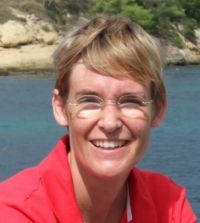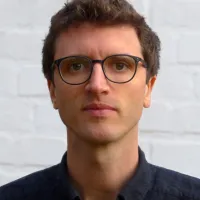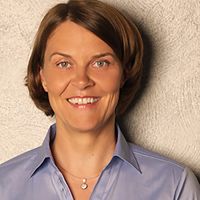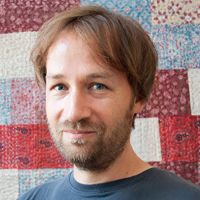Board
First Chair: Dr. Maya von Czerniewicz

My passion for prehsitoric archaeology was awakened by a number of trips to the north of Africa, where I accompanied my archaeology-loving parents as a teenager. As a student, I took part in expeditions led by Tilman Lenssen-Erz (African Research Unit /University of Cologne) to the Brandberg in Namibia. During the course of my studies, I also carried out research in Egypt and Nigeria. I had the opportunity to do my doctorate as part of the SFB 268 "Cultural Development and Language History in the Natural Area of the West African Savannah" at the Johann Wolfgang Goethe University in Frankfurt an Main.The development of Iron Age pottery in the settlement mounds in the north of Burkina Faso/West Africa was the focus of my research during my time in Frankfurt. Back at the University of Cologne, I was part of the research team that, together with Dr. Tilman Lenssen-Erz, combined excavation archaeology with rock art archaeology in the Ennedi Mountains in Chad. Through many years of involvement in the AARC project at the University of Cologne, I was able to contribute my interest in data management and data curation to the pilot project.
For me, making archaeological data accessible to researchers all over the world is an important building block for the future.
Second Chair: Dr. Jan Kuper

Since my studies in prehistoric archaeology at the University of Cologne, I have been interested in the prehistory of North Africa. My particular focus is on the occupation of today's desert areas by hunter-gatherers and their adaptation strategies to changing environmental conditions. The regional focus is on Egypt, Libya, Chad and Sudan. Since completing my doctorate at the Friedrich-Alexander-Universität Erlangen-Nürnberg, I have been investigating the reoccupation of the Eastern Sahara during the last wet phase as part of a project funded by the German Research Foundation: Where did the people who occupied the previously inhospitable, hyper-arid region come from? What settlement strategies enabled the colonisation of unfamiliar landscapes? And what impact did climatic changes have on this process?
Secretary: Dr. Karin Kindermann

Since the beginning of my studies, my scientific interest has been directed on African archaeology, and here especially to North Africa. The focal points of my research in this region are Pleistocene and Holocene climate and environmental history, geo-archaeological and landscape archaeology, the dispersal routes of anatomically modern humans, Mid-Holocene settlement archaeology and the transition from prehistoric to dynastic times. What was important here was that my research – in Egypt, Libya, Jordan and France, among other places – was multidisciplinary and collaborative.
The protection of the archaeological heritage of North Africa as well as the education and training of local partners and young academics are close to my heart.
Treasurer: Oliver Vogels

During my studies, I heard about Tilman Lenssen-Erz' work and his investigation of prehistoric rock art at the Dâureb (Brandberg) in Namibia and that depictions of musical bows were discovered there. My interest was immediately caught, as it was an ideal combination of my subjects Musicology, African Studies and Prehistoric Archaeology. Since then, I have been particularly interested in the question of what we can learn about the past from today's music cultures and hunter-gatherer societies.
I enjoy archaeological research most when it takes place a little off the beaten methodological tracks and with researchers from different disciplines.
Former Board
Dr. Rudolph Kuper
Prof. Dr. Olaf Bubenzer
Dr. Tilman Lenssen-Erz
Dr. Werner Schuck
Constitution
The statutes of the Heinrich-Barth-Institute for Archaeology and Environmental History of Africa can be downloaded here in pdf format:
